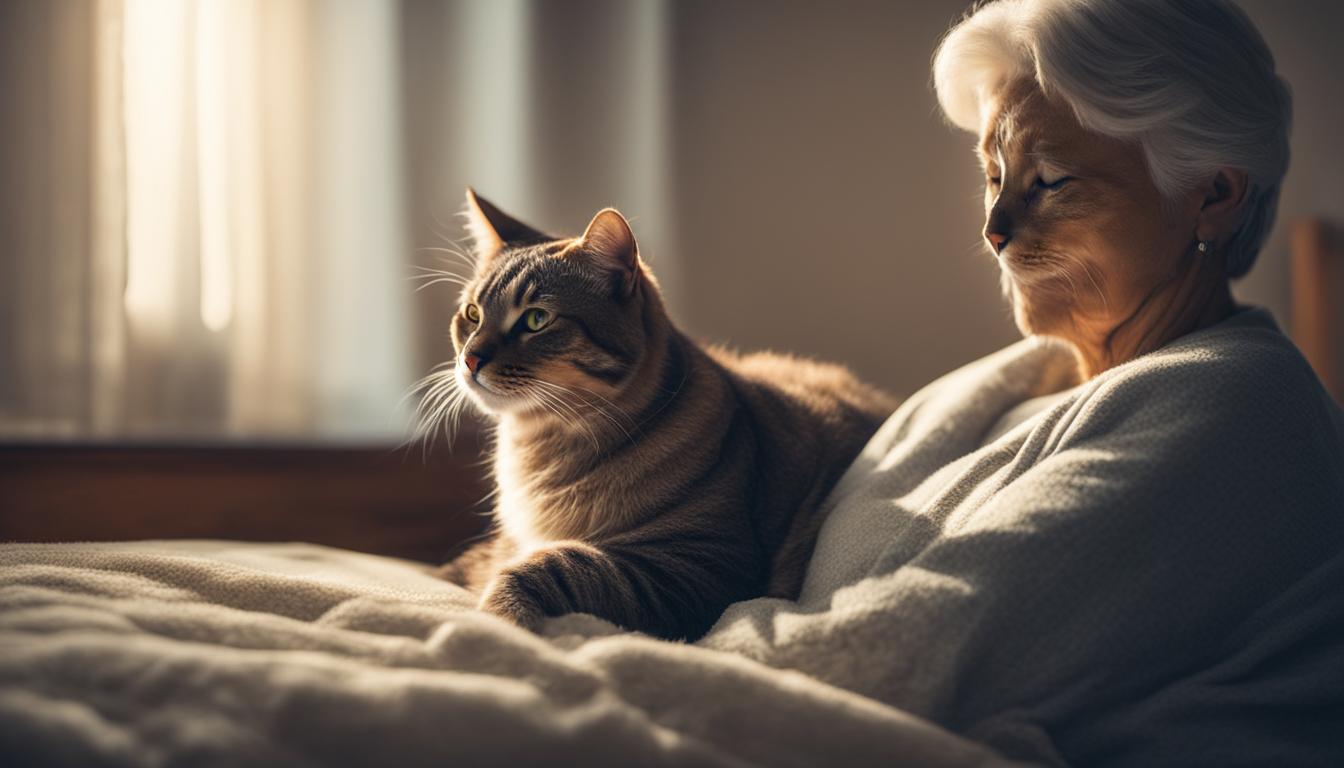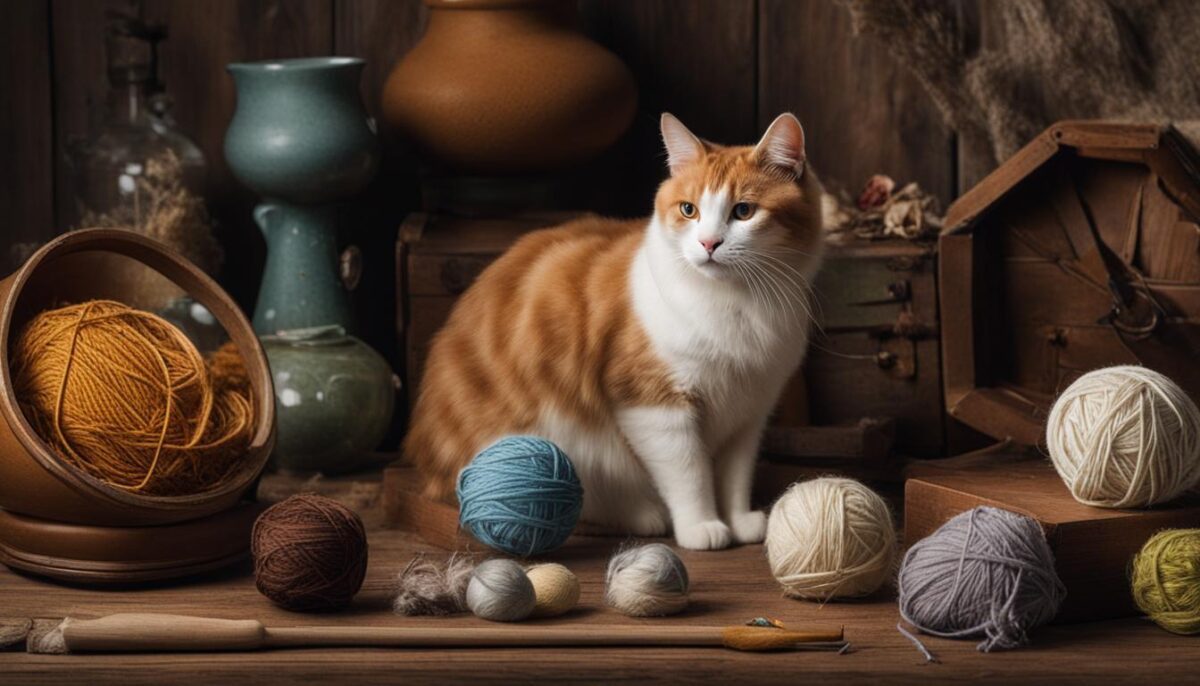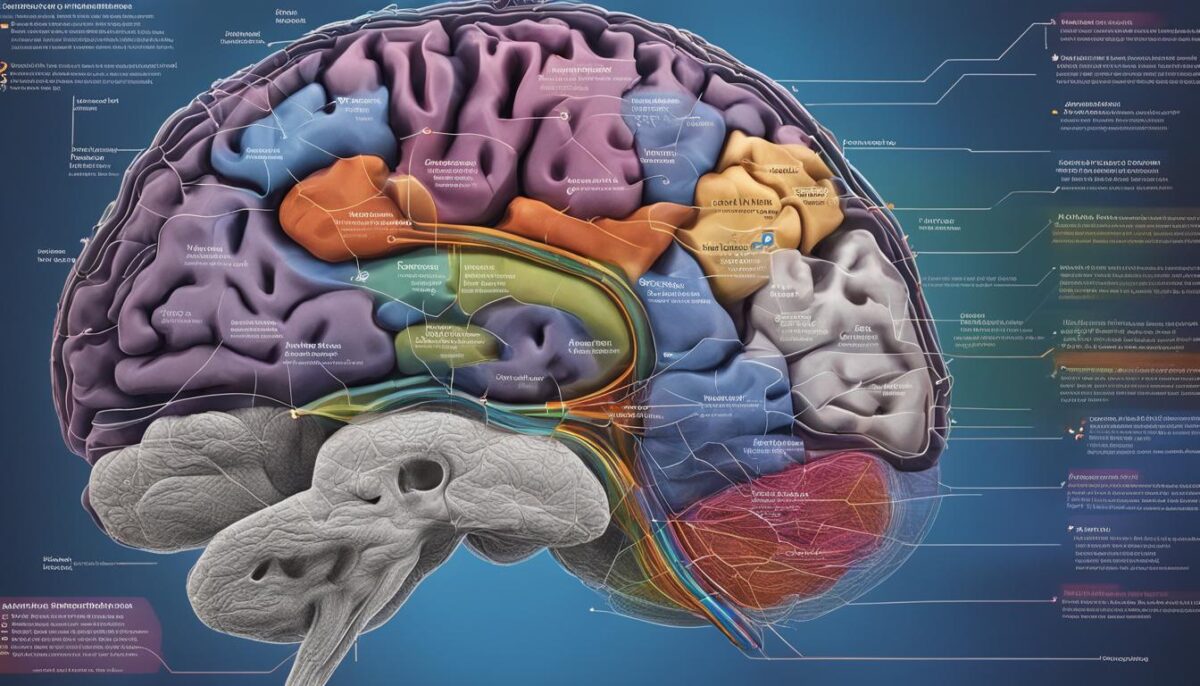Do you know that your furry friend can have memory problems too? Yes, just like people, older cats can face something called cat dementia or feline cognitive dysfunction. This is when a cat gets older and starts forgetting things or acts differently. Your senior cat might need extra love and care. If they are forgetting more or seem confused, they might be dealing with memory loss in cats, which is sad, but there are ways to help!
Think about the oldest cat you know. Once they are around 14 years old, they are like grandparents. They might not eat the same or could meow louder than before. Even cats as young as 7 years old can start to show signs of getting older in their brain. There isn’t a medicine that can cure this, but a good vet can find ways to make their life cozy and happy.
Key Takeaways
- Cats can have memory problems like people do.
- Older cats might act differently if they have cat dementia.
- Even younger cats, starting at age 7, can show signs of memory loss.
- Loud meowing or not eating like before can be clues.
- A good vet can make your cat’s life better.
Understanding Feline Cognitive Dysfunction Syndrome
As your kitty grows older, they might start to act a bit differently. They may seem confused sometimes, or not remember the tricks they once did. This could be a sign of something called cognitive dysfunction syndrome (CDS), which is a lot like dementia in people. But don’t worry, not all aging cats will face this challenge. In fact, stats show that around 36% of cats between the ages of 11 to 21 could develop signs of CDS. And when they get over 15 years old, about half might show signs suggestive of this condition.
But, changes in how your furry friend acts isn’t always due to CDS. Sometimes, it’s something else that’s making them act strangely. That’s why it’s really important to take your cat to the vet. The vet can help figure out if it’s aging feline behavior or something else, giving a correct diagnosis.
So, if your cat is getting up there in the years and you’re noticing they’re not quite themselves – maybe they’re meowing more or sleeping at odd times – it could be CDS in cats. The first step is to visit the vet, who will be kind and gentle with your old buddy. Together, you and your vet can work out the best ways to help your cat stay comfortable in their senior years.
- Remember, cognitive dysfunction syndrome is like dementia for cats.
- Not every older cat gets it, but many do.
- Behavior that’s out of the ordinary could be a sign of CDS.
- A check-up with the vet is the best way to be sure.
Your cat has been a great friend for many years. Now it’s your turn to help them when they need it. Keep loving your aging kitty, and speak to your vet for the best ways to support them through their golden years.
Can Cats Get Dementia?
As our furry friends grow older, they might start to act a little different. You might have noticed some changes in your senior cats that could be sign that they’re dealing with feline aging.
Increasing Prevalence in Aging Cats
Do you know older cats today are more likely to show changes in how they think and act? This is part of what we call feline aging. Our kitty companions might start to do things like not wanting to play as much or seeming a bit confused about where they are. This doesn’t just happen because they’re getting older; it might be a sign of something more. Just like people, cats can experience cognitive changes as they age.
Recognizing the Signs and Symptoms
It can be really sad to see, but some cat dementia signs to look out for in your senior cats include not eating much or changes in their sleep. Have you ever noticed your cat meowing more at night, or that they forget the tricks or habits they used to know? These could be clues that your cat is going through some cognitive changes.
Sometimes, these changes mean your kitty could have cat dementia, but there’s good news: your vet can help! While there’s no cure, things like special foods, nice pets, and setting up your home a little differently can make life better for your senior cat. Here’s a handy table to help you spot some of the signs of cognitive changes in aging cats:
| Sign | What It Might Look Like |
|---|---|
| Less Playing | Not interested in toys they used to love |
| Getting Lost | Seems confused in familiar places at home |
| Eating Changes | Doesn’t eat as much or forgets to eat |
| Sleep Changes | Sleeps at odd times or more than before |
| Noisy at Night | Meows or cries more during the night |
| Forgetting Learned Behaviors | Doesn’t remember commands or house rules |
Remember, our kitty friends can’t tell us when something’s wrong, so it’s up to us to watch for these signs and help them as they get older. If you see any of these changes in your cat, a trip to the vet can help figure out what’s happening and how to make your cat as happy and comfortable as possible.
Factors Contributing to Dementia in Cats
Have you ever wondered why some older cats seem to forget things or act differently? It might be because of something called feline dementia. Just like people, cat brains can change as they get older. One of the causes of feline dementia is when certain proteins build up in their brains. This can clog up their brain cells and make it hard for them to think clearly.
Kitty brains need to be healthy to remember how to do cat things, like jumping and purring. They need healthy foods with stuff like Omega-3, which is a type of oil that’s good for the brain. Vitamins can help too, like vitamin B12 and E. They’re like a power boost for your cat’s head. Some foods are even special made to help with protein buildup in cats.
| Nutrient | Benefits for Cat Brain Health |
|---|---|
| Omega-3 Fatty Acids | Helps protect brain cells and keeps nerves working well. Often found in fish oil supplements. |
| Vitamin B12 | Important for nerve health and can help cats feel more energetic. |
| Vitamin E | Works like a shield to protect cat brains from damage. |
As our furry friends get silver whiskers, let’s make sure we feed them the right stuff to keep their brains healthy. That way, they can stay curious and happy, pouncing and playing for as long as possible!
Diagnostic Steps: How Vets Assess Feline Dementia
If you’re worried your cat might have dementia, your vet will take certain steps to find out. They’ll look at your pet’s behaviors, and make sure these signs are not from other health problems. It’s like being a detective, but for cat health!
Exclusion of Other Conditions
First things first, your vet will look at other reasons your cat might act oddly. They’ll check for things that might confuse or upset your cat, like hyperthyroidism or kidney issues. This means your cat might need blood tests or x-rays. Sometimes, the vet gives medicine to see if pain is the problem.
Observational and Clinical Evaluation
Your vet wants to know how your cat acts at home. If you can, take a video when they do something strange and show it to your vet. These steps help the vet to do a great job at diagnosing cat dementia. They work hard at veterinary evaluation for cognitive dysfunction to learn what’s going on with your furry friend.
FAQ
What is cat dementia, and can my cat develop it?
Cat dementia, also known as feline cognitive dysfunction (CDS), is a condition similar to Alzheimer’s in humans. Cats as young as 7 may show early signs, with more evident symptoms as they reach senior status at about 14 years. While it’s not guaranteed that every cat will develop this condition, it is a possibility as they grow older, especially after the age of 15.
How do I know if my senior cat is experiencing cognitive dysfunction?
More frequent meowing, particularly at night, changes in eating habits, less interest in playing, and signs of confusion like getting lost in familiar places are common signs of feline cognitive dysfunction. Remember, these signs can also indicate other health issues, so it’s essential to consult with your vet.
Are there any particular behaviors that indicate my cat may have dementia?
Certainly, behaviors such as forgetting previously learned commands, changes in sleep patterns, irregular eating, or lack of interest in playtime can suggest your cat may be suffering from dementia. Keep an eye out for any deviation from their normal behavior and share these observations with your veterinarian.
What causes dementia in cats, and can it be prevented?
While the exact causes of dementia in cats are not entirely understood, it is often linked to the buildup of specific proteins in the brain and the deterioration of neuron cells that affect memory and attention. Regular vet check-ups, maintaining a healthy diet with supplements like Omega-3, vitamin B12, and vitamin E, and keeping your cat mentally stimulated may help support brain health and potentially slow down the progression of dementia.
How do veterinarians diagnose dementia in cats?
Veterinarians will first rule out other health conditions that could be causing the behavior changes, such as hyperthyroidism or kidney issues. This involves a combination of blood tests, x-rays, and possibly trials with medications to alleviate pain. Observational data, including videos of your cat’s behavior provided by you, can also be crucial in the diagnostic process.
Are there treatments or ways to manage cat dementia?
While there’s no cure for cat dementia, there are ways to manage it and improve your cat’s quality of life. Your vet may advise specific diets designed for brain health, calming treatments, environmental adjustments within your home for safety, and possibly medications to manage any associated symptoms or behaviors.
What percentage of older cats develop cognitive dysfunction syndrome?
It is estimated that around 36% of cats aged 11 to 21 years may develop some degree of cognitive dysfunction syndrome (CDS), and the probability increases to about 50% for cats over the age of 15. However, it’s important to note that not all senior cats will experience this condition.
Can keeping my cat active prevent feline dementia?
While there’s no guaranteed way to prevent feline dementia, keeping your cat mentally and physically active can help maintain their cognitive function. Activities that stimulate their brain, such as interactive toys and playtime, along with a nutritious diet, can contribute to overall brain health.


